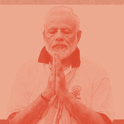I am unutterably depressed.
I have just watched the television news. In this single bulletin, I learned that: one, a report has discovered that organised sexual abuse of children is still widespread; two, another report has disclosed casual racism, misogyny and homophobia are endemic in the police force; and three, clumsy diplomacy is in danger of leading us into war. An hour of misery viewing.
Official focus groups and polls seem to dictate policy nowadays, but I surmise that I am not alone in feeling disturbed. There is a general unease. All that clapping for the NHS and general bonhomie has been abandoned and many of us are in a thoroughly bad mood. When a cyclist knocks me over on the footpath, then yells at me for being in the way, I scream back: “foot, you prat, that’s the operative sodding word!”
My blood pressure is beyond dead-of-a-stroke level. I spend from 3am till 6am every night worrying about everything from the world coming to an end, to that new obviously cancerous pimple on my chin.
Boris Johnson’s desperation to be loved has led to him abandoning all the rules that he made and broke, but many people are alarmed by his volatility. Nothing is certain. The extremely vulnerable have been virtually abandoned. Unspeakable cruelty, especially towards children, resulting from being trapped for two years in overcrowded homes with no school to escape to, is coming to light.
I begin to wonder whether homo sapiens is actually worth saving from global warming. Maybe we should just frizzle away to be found millions of years hence by some better new species, when their robotic diggers unearth a weird fragment of charred material.
I must resort to my anti-depression modus operandi. When I despair about misled gangs storming the Capitol building in Washington, or aggressive nutters attacking exhausted NHS workers, I remind myself of what some of the human species has achieved.
I listen to Beethoven’s Cavatina, which never fails to leave me sobbing with appreciation of its complex beauty. Maria Callas giving her all in Tosca—how dare that absurd Greek shipping magnate Aristotle Onassis not treat her like the goddess she was. Renée Fleming singing Rachmaninoff’s “Vocalise” does superhuman things with her voice, as does Janet Baker in Dido’s lament. If I need to calm down, I listen to the second movement of Ravel’s Concerto played by Arturo Benedetti Michelangeli, a pianist with whom I am besotted. (I told John he was the only man for whom I would leave him. He felt the same about Elisabeth Schwarzkopf.)
Classical music thrills, comforts and amazes me. As a child I had only heard popular music, a bit of “The Desert Song” and its ilk, sung by my mum and dad in the pubs where they lived and worked. My first revelation that there was something called classical music happened when I was about eight. Miss Winifred Scott endured an hour each week trying to persuade me to practise the piano.
She was a very pale, quietly spoken lady who smelt of lavender. One day she freaked out. I had done no work and was picking my way clumsily through Clair de Lune when she put a record on the wind-up gramophone, pushed me off the piano stool and thundered her way through what I later discovered was the Grieg Piano Concerto. It was a sort of primitive karaoke. Miss Scott was transformed into a passionate performer, released for a while from the imprisonment of teaching snotty-nosed kids. I was transfixed.
Beethoven’s Cavatina never fails to leave me sobbing with appreciation of its complex beauty
Then at grammar school another angel arrived bearing gifts that would enrich my life. Miss Tudor Craig took a lesson called Musical Appreciation. She would give a talk about a composer and then sit on the platform, her legs akimbo, exposing passion-killer knickers, to listen ecstatically to a record. The main reaction from the pupils was giggling and passing rude notes. Then one day she played the orgasmic fantasy overture to Tchaikovsky’s Romeo and Juliet. It is no longer a favourite, but when I was 12 years old it took my breath away. I made her write down the composer’s name and took it with my pocket money to the local music shop. They didn’t have the record in stock and tried to interest me in other pieces, but I couldn’t believe there was anything else so lovely. I have spent the rest of my life discovering that there is.
If I want to remind myself of what human animals can do with their ungainly bodies, I look at a clip of Margot Fonteyn and Rudolf Nureyev dancing together. There are other treasures in my comfort collection. Stevie Wonder, Nina Simone. I frequently laugh at and quote from the iconic film Withnail and I: “we want the finest wines available to humanity, we want them here and we want them now.”
I watch The Producers to see how brilliantly, with humour, a Jewish man, Mel Brooks, ridicules the perpetrators of one of the worst crimes in human history.
So, Sheila, remember, Lycra-clad cyclists, Nigel Farage, old Etonians notwithstanding, in the words of one of the greatest: “what a piece of work is a man.”
And all the other genders, of course.













